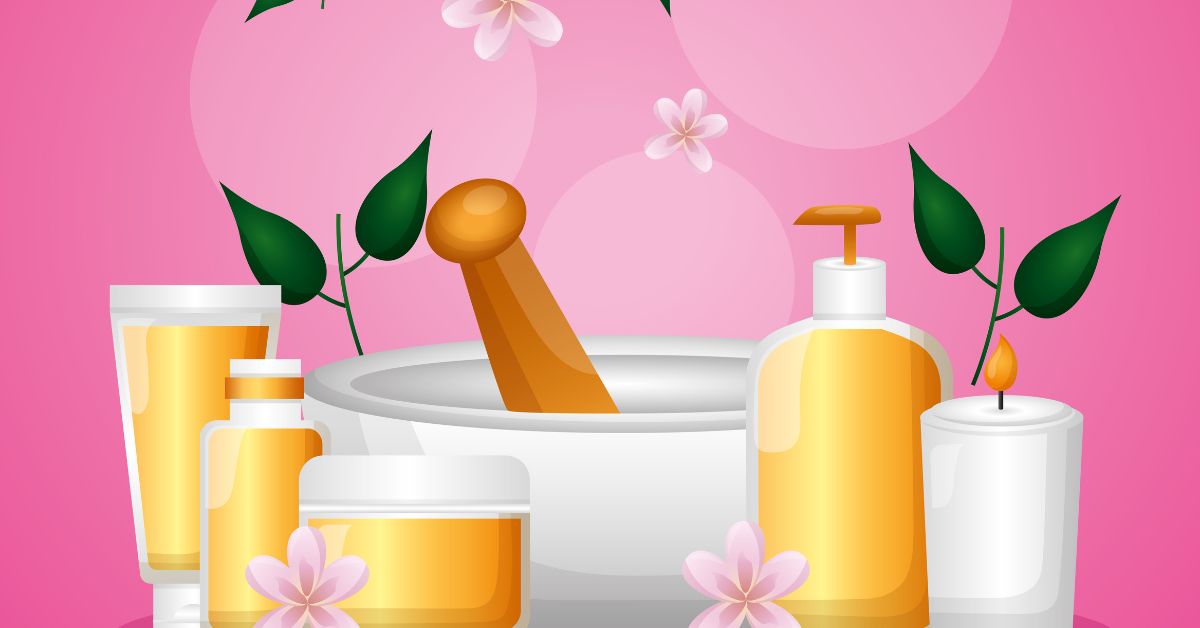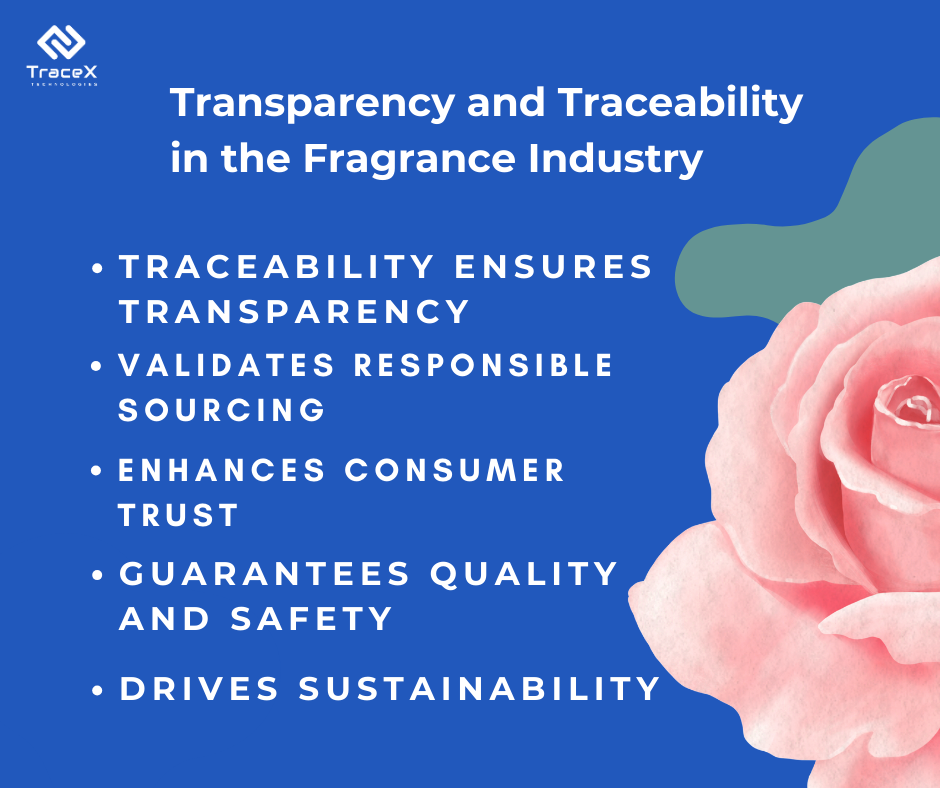Contact: +91 99725 24322 |
Menu
Menu
Quick summary: Unlock the journey of nature's essence with flower traceability. Dive into the world of floral sourcing, sustainability, and ethical practices. Explore how traceability solutions revolutionize the flower industry, ensuring transparency and quality from seed to scent.

Flower traceability unveils a captivating narrative of botanical elegance interwoven with the artistry of fragrance crafting. From the ethereal allure of freshly picked blossoms to the intricate process of distillation and extraction, this journey promises to immerse you in the enchanting world where nature’s blooms transform into exquisite perfumes.
The world’s main source of cut fresh flowers comes from Ecuador, Kenya and Colombia, amounting to between 85 and 90% of production.
As consumers increasingly seek transparency and sustainability in their products, the fragrance industry faces a unique challenge: ensuring traceability from the origin of the flower to the final bottled scent.
The flower and horticulture market plays a vital role in various aspects of our lives, beyond just aesthetic pleasure. Flowers are not only beautiful additions to our surroundings but also hold significant cultural and symbolic meanings. Moreover, the horticulture industry encompasses a wide range of plants, including fruits, vegetables, ornamentals, and medicinal herbs, contributing to biodiversity and ecosystem health. From enhancing landscapes to providing essential pollinators for agriculture, flowers and plants are integral to our environment. Additionally, the flower and horticulture market support livelihoods for millions of people worldwide, from small-scale farmers to large-scale exporters, driving economic growth and sustainable development. Therefore, ensuring traceability and transparency in this industry is crucial for maintaining quality standards, promoting sustainability, and meeting consumer demand.
The natural fragrance market utilizes plant-based ingredients and essential oils to craft scents for perfumes, cosmetics, personal care items, and home fragrances. Driven by heightened consumer interest in natural and eco-conscious products, this market has experienced notable growth. Distinguishing itself from synthetic counterparts, natural fragrances boast several advantages. They lack harmful chemicals and toxins, minimizing allergy risks and health concerns. Furthermore, their intricate scent profiles enable the creation of distinctive and nuanced fragrances.
Traceability in the fragrance industry refers to the ability to track the origin and path of fragrance compounds from the flower to the finished bottled product. It requires thorough documentation and tracking throughout the supply chain.
Fragrance flowers are carefully cultivated, frequently in specific places noted for their favourable climatic and soil characteristics. Skilled farmers care for these blossoms, ensuring that they survive and retain their aromatic properties. Sustainable farming practices are used to conserve the ecology and biodiversity, which is critical for ensuring the purity of fragrance ingredients.
Once the blossoms have reached peak maturity, they are carefully harvested to preserve their delicate aroma components. To capture the essence of the flowers, a variety of extraction procedures are used, including steam distillation, solvent extraction, and enfleurage. This rigorous technique ensures that the scent maintains its original aroma and strength.
After extraction, expert perfumers combine the aroma oils with other components to produce unique compositions. These blends are rigorously tested to assure consistency and quality before being carefully bottled and packed. Each stage in the manufacturing process is executed with accuracy and attention to detail, resulting in a finished product that captures the essence of the fragrance.
The sustainability of flower production is a multifaceted endeavor that involves balancing environmental, social, and economic factors. Sustainable flower production aims to minimize the environmental impact of cultivation practices, such as reducing water usage, minimizing pesticide and fertilizer use, and preserving natural habitats. It also encompasses social responsibility by promoting fair labor practices, ensuring the well-being of workers, and supporting local communities where flowers are grown. Furthermore, economic sustainability in flower production involves efficient resource management, fair pricing for growers, and market access for small-scale producers. By prioritizing sustainability throughout the flower production process, stakeholders can preserve biodiversity, protect natural resources, and create a more resilient and equitable floral industry for future generations.
The process of sustainable sourcing involves identifying raw materials that meet specific criteria such as aroma, taste, quality, and compliance. Suppliers play a crucial role in cultivating, processing, and delivering these materials to companies. Establishing robust relationships with reliable suppliers is vital for ensuring a steady supply of high-quality ingredients and adhering to strict standards and sustainability requirements.
Certifications and standards play a vital role in delivering a myriad of benefits, serving as a testament to companies’ dedication to quality, safety, sustainability, and ethical practices. By obtaining and upholding certifications, companies showcase their steadfast commitment to responsible ingredient sourcing, traceability, and meeting the discerning expectations of consumers prioritizing top-tier and ethically derived products.
Certifications and standards drive sustainability, ethics, and quality in our products.
Discover the Path to Sustainability
Solid supplier partnerships are essential for maintaining ingredient quality and authenticity across industries, ensuring consistent supply, ethical practices, and transparency. By forging enduring relationships with dependable suppliers, companies can count on a steady and reliable source of top-quality ingredients. These long-term partnerships not only foster trust but also drive innovation and pave the way for sustained success in the industry.
In the flavour and fragrance sector, industries employ stringent quality control methods to authenticate and uphold the excellence of their ingredients. These approaches encompass diverse procedures such as laboratory analysis, routine assessments, and thorough inspections. Quality assurance frameworks incorporate tasks like record-keeping, managing specifications, and executing batch release protocols, guaranteeing that ingredients adhere to established quality benchmarks.
Careful ingredient sourcing and traceability are fundamental elements that underpin the creation of outstanding products. Ingredient sourcing involves the meticulous selection and acquisition of raw materials essential for crafting flavors and fragrances. Traceability, meanwhile, entails the capability to track an ingredient’s path across the supply chain, from its source to its integration into the ultimate formulation.
In the fragrance industry, traceability is critical to ensuring scent authenticity and quality. Manufacturers can ensure the quality and potency of raw materials by tracing each ingredient back to its origin. This ensures that only the highest quality ingredients are utilised in scent formulations, preserving the finished product’s integrity and the brand’s reputation.
Traceability allows organisations to identify the origin of fragrance ingredients, giving customers with transparency and reinforcing brand trust. Companies that track the journey of each component from cultivation to production can assure ethical sourcing procedures and compliance with sustainability guidelines.
In a sector with tight norms and standards, traceability is critical for assuring compliance and avoiding risks. Companies that keep accurate records and documentation along the supply chain can establish compliance with regulatory standards for ingredient safety, labelling, and manufacturing processes. This not only protects customer health, but also the brand from any legal and reputational ramifications.

Various technology and solutions aid traceability in the fragrance industry. This incorporates blockchain technology, which provides a secure and immutable ledger for recording transactions and tracking ingredient movement. RFID (Radio Frequency Identification) tags allow for real-time product tracking throughout the supply chain, whilst QR codes provide consumers with extensive information on the origin and composition of perfumes. Additionally, modern analytics and data management solutions assist businesses in analysing supply chain data to uncover patterns, trends, and areas for development.
TraceX’s blockchain traceability solutions address the challenges in the fragrance industry by providing a transparent and secure platform for tracking the journey of ingredients throughout the supply chain. Through blockchain technology, TraceX ensures the authenticity and integrity of ingredient information, allowing companies to verify the origin and quality of their materials. This transparency helps in maintaining stringent quality control measures and facilitates compliance with industry regulations. Additionally, TraceX enables real-time monitoring and documentation of ingredient transactions, reducing the risk of counterfeit products and enhancing overall supply chain efficiency and integrity.
The fragrance business is seeing interesting advances in traceability technology. One major breakthrough is the use of DNA tagging, which embeds unique genetic identifiers in scent ingredients to ensure their validity and provenance. Blockchain is revolutionising traceability by offering a decentralised, tamper-resistant ledger for tracking supply chain transactions. Advanced sensor technologies allow for real-time monitoring of environmental conditions throughout ingredient cultivation and processing, resulting in optimal quality and sustainability.
Recognising the value of traceability, industry players are working together to develop industry-wide standards and best practices. These collaborative projects entail the sharing of information, resources, and technologies in order to develop standardised methods for recording and verifying the path of fragrance ingredients from source to shelf. Companies should work together to expedite traceability processes, improve interoperability among supply chain partners, and establish a standard for responsible and sustainable fragrance creation.
Derived from global standards, the Trade Facilitation Agreement (TFA) offers a valuable blueprint for governments to balance border security and trade facilitation. As an illustration, the Ugandan government collaborates with the Global Alliance for Trade Facilitation to reassess and streamline the sanitary and phytosanitary inspection procedures for horticultural products. This initiative aims to minimize the time and expenses associated with compliance, aligning with the principles outlined in the TFA
To summarise, traceability is more than a buzzword; it is a vital enabler of integrity, sustainability, and customer trust in the fragrance industry. Traceability reveals the route of fragrance ingredients from cultivation to bottling, ensuring authenticity, quality, and ethical sourcing procedures at all stages.
As technology breakthroughs continue to transform traceability, the fragrance business is at the forefront of innovation, utilising DNA tagging, blockchain, and sensor technologies to increase transparency and accountability. These technologies not only enable consumers to make more informed decisions, but they also create good change by encouraging sustainability and ethical behaviours throughout the supply chain.
Furthermore, coordinated efforts towards industry-wide traceability standards demonstrate stakeholders’ combined commitment to maintaining the highest levels of integrity and responsibility. Companies that collaborate can overcome obstacles, improve supply chain efficiency, and set new standards for transparency and sustainability in the fragrance sector.
